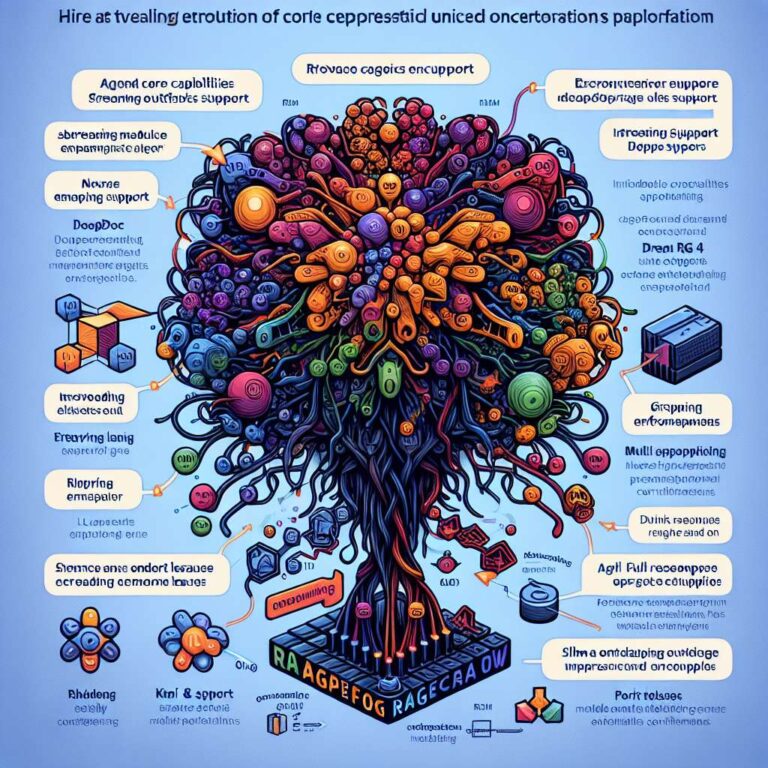RAGFlow’s release notes document iterative updates from v0.5.0 through v0.20.3, focusing on new features, model support, user interface improvements and stability fixes. Early releases introduced core capabilities such as support for LLM DeepSeek (v0.5.0) and streaming output, while later releases expanded document processing with DeepDoc, GraphRAG enhancements and tag-based knowledge bases. The project has also added multiple user interface languages and options for slim and full Docker image editions to accommodate different deployment scenarios.
Recent major changes include a substantial agent refactor and unified orchestration of agents and workflows introduced in v0.20.0. That release added Multi-Agent configurations, planning and reflection features, runtime logs for agents, chat histories in the management panel and MCP (multi-cluster protocol) functionality enabling RAGFlow to act as an MCP server and client. v0.20.0 also introduced OpenAI-compatible APIs with file reference support, new model provider integration with Gitee AI, and support for models and embeddings such as Kimi K2, Grok 4 and Voyage embedding. v0.20.1 followed with dynamic retrieval variables, a French UI option and newly supported models GPT-5 and Claude 4.1. v0.20.3 focused on front-end improvements, adding a revamped datasets, chat and search UI, document-level metadata filtering, the ability to compare up to three chat model settings, and usability improvements in the agent component including citation toggling and drag-and-drop component creation.
Across versions the team addressed reliability and compatibility issues: fixes for memory leaks, timeouts affecting tasks such as GraphRAG, parser and prompt editor bugs, and agent sharing and embedding problems. Documentation and API changes are tracked per release, including deprecated endpoints and new parameters for document metadata. The notes also list many new agent templates and workflow examples—covering research, resume analysis, customer service and blog generation—and ongoing integrations with providers and engines such as Infinity, DeepDoc and various model vendors. For deployers, compatibility warnings note agent rebuilds required after certain upgrades and guidance on choosing slim versus full image editions.

